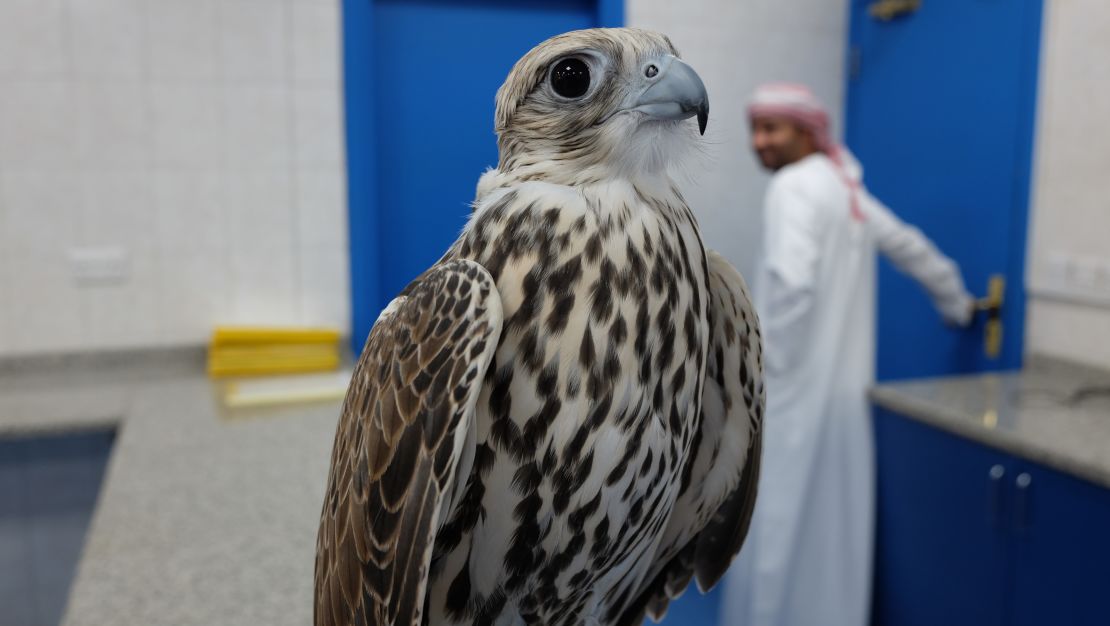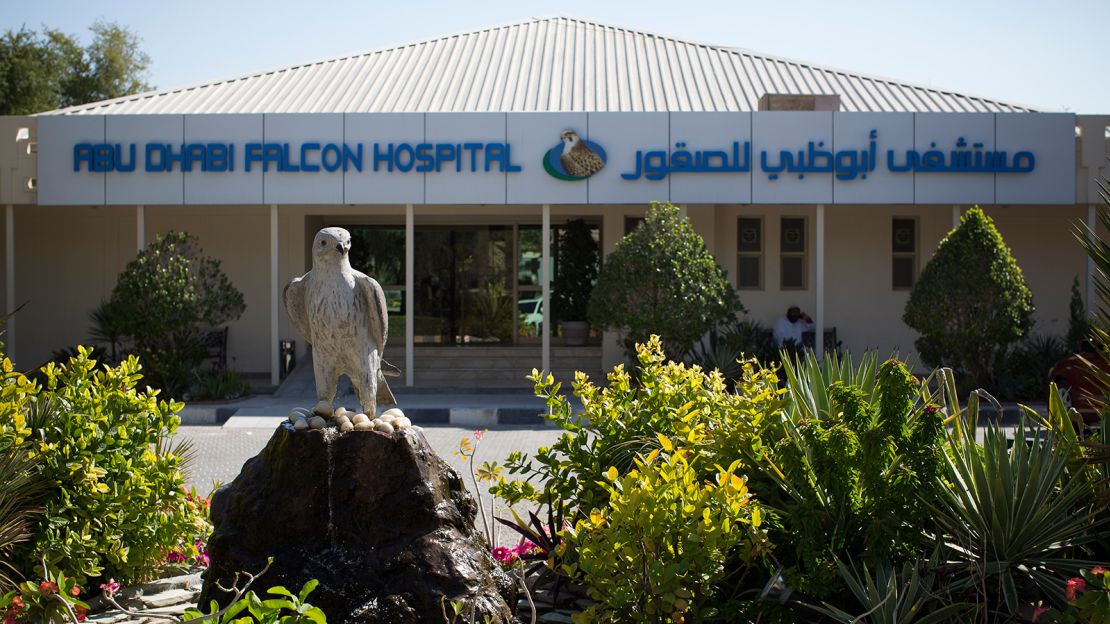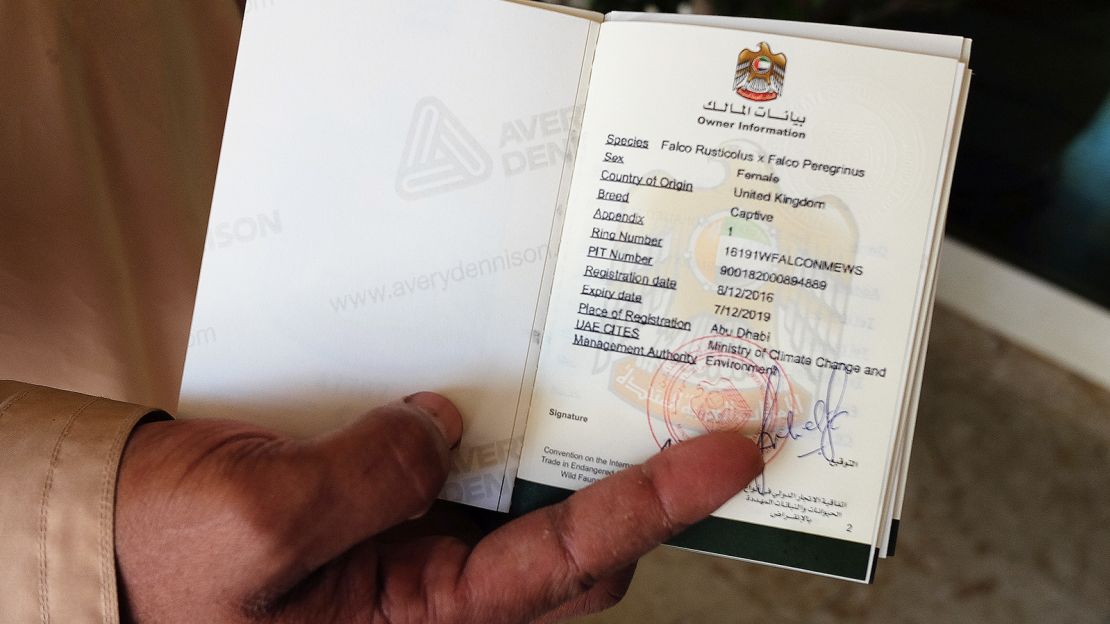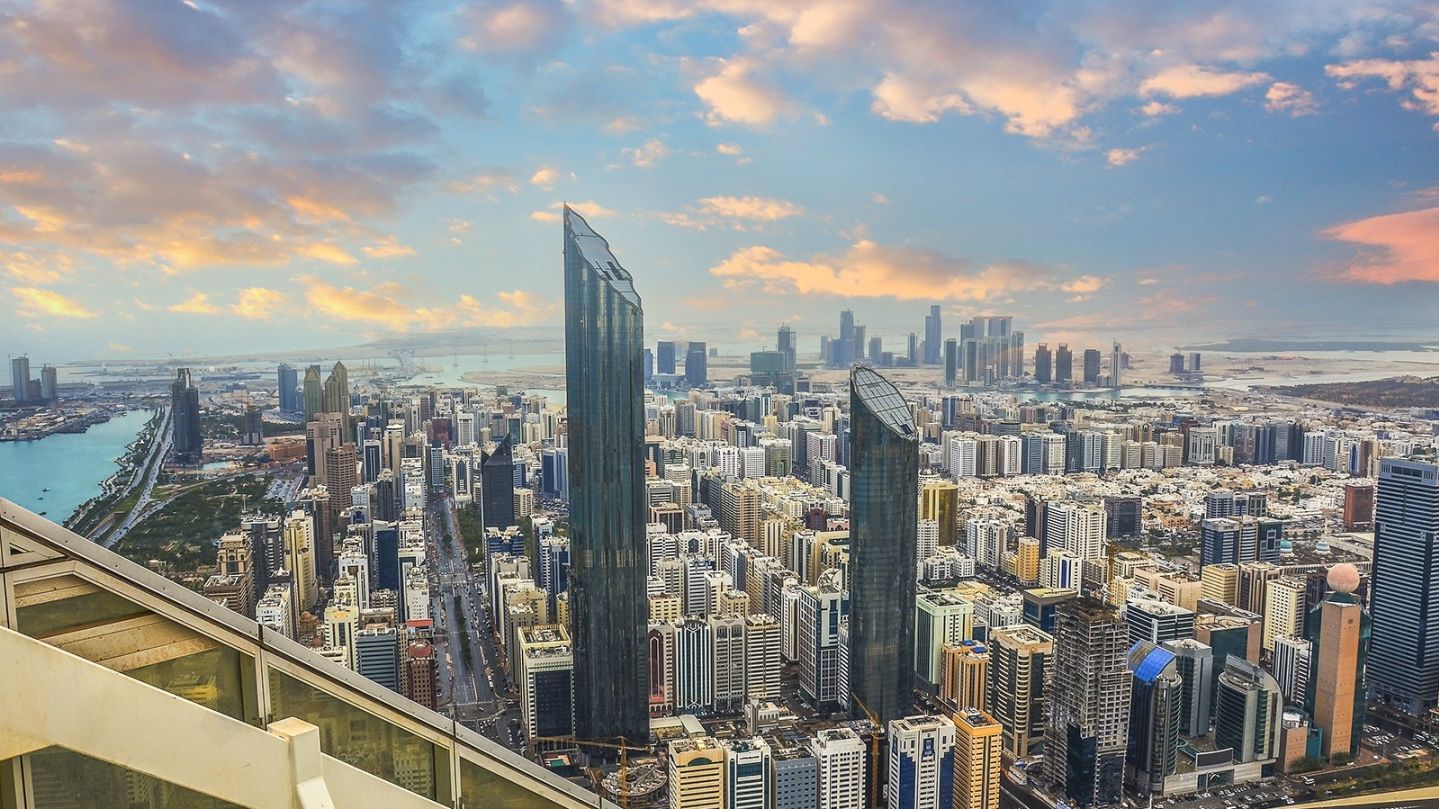Editor’s Note: CNN Travel’s series often carries sponsorship originating from the countries and regions we profile. However, CNN retains full editorial control over all of its reports. Read the policy.
Story highlights
More than 11,500 sick birds are treated at the Abu Dhabi Falcon Hospital each year
In the UAE, falcons are treated like family members
A large white SUV pulls up outside a hospital. An anxious-looking man lifts the patient from her seat and carries her into reception where she waits patiently to be seen by medics.
All completely normal – apart from the fact the patient’s head is covered by a leather hood and her feet are tethered.
But there again, she is a falcon.
It’s a typical scene at the Abu Dhabi Falcon Hospital, a world-leading veterinary clinic that annually treats more than 11,500 birds for owners who cherish them like family members.
The hospital, opened in 1999, bears a striking resemblance to a facility that treats people.
Once the birds get checked in, they’re taken to a triage room where the medical team weigh them and quickly assess symptoms.
Non-urgent cases – still wearing the leather hoods that keep them calm – are placed onto perches until it’s their turn for treatment.
Falcons in critical conditions are rushed through to an operating theater where a team is on 24-hour standby to perform delicate surgery that can last several hours.
Later, sick birds are moved to intensive care units or air-conditioned hospital wards where they convalesce and are known to perk up during daily visits from worried owners.
Falcon X-rays

“It functions exactly the same way as a human hospital,” says Margrit Gabriele Müller, an energetic German veterinarian who has run the facility for more than 15 years.
“The birds come to the general check-up area where we see if there’s something wrong, if they need some further examination, like X-ray or endoscope, and if they require surgery.”
Some critically ill falcons are placed in incubators originally designed for babies.
“What works for babies usually works for falcons, because there’s no equipment or tools especially for falcons, so we always have to take it from somewhere else,” Müller adds. “That’s why we love babies here.”
The level of care lavished on falcons might seem excessive to outsiders, but in the UAE, where the birds are revered as symbols of national pride and tradition, it’s perfectly normal.
“Falconers here love their birds like they love their own children,” says Müller. “Or even more sometimes.”
She says it’s not unusual in the UAE for falcons to have their own perch in the living room at home. Sometimes they sleep next to their owner’s bed and even have a place at the office.
The birds have passports and sometimes get their own business class seat on airplanes.
Hospital tours

“In Europe and America, falconry is a sport. But here in the Emirates, falconry was traditionally a means to hunt meat,” Müller says. “Life was very difficult in the desert and falcons were essential to the survival of Bedouin families.”
It’s hardly surprising then that Abu Dhabi has invested so heavily in its Falcon Hospital, transforming a dusty compound out near the main airport into a gleaming world-class facility.
The hospital now has 107 employees, its own lab, a pet hotel and a hospital for other small animals. It offers training for veterinarians, students, lab technicians and falcon rehabilitators.
Patients are regularly brought in from across the UAE and other Arabian Gulf nations, including Saudi Arabia, Qatar, Kuwait and Bahrain.
These days, they’re also joined by tourists.
The hospital opens its doors to twice-daily tours that allow the public to watch medical procedures, learn about the work and even feed the falcons. The award-winning experience is now one of Abu Dhabi’s top attractions.
Perhaps the hospital’s most remarkable asset is Müller herself, a woman who had dedicated her professional life to falcons.
The veterinarian was already specializing in the birds when she was recruited in 2001, but says she initially struggled to win the respect of hospital staff and falconers.
“It was an adventure to come here, I didn’t know exactly what to expect,” she tells CNN shortly before scrubbing up for her first surgery of the morning.
“The first one or two years were very difficult, because the falconers didn’t accept me as a lady, as a Westerner. I brought a different kind of medicine which they were not used to.
“For the staff it was also very difficult to have a lady as a boss, in charge. And when I came I made changes almost everywhere, in the medication, in the way of treating the falcons, even of the work flow.
‘Magic’ eyes

“In the end it was beneficial, but it was quite a lengthy process to come up to this stage.”
One significant improvement, she says, is extending the lifespan of her patients from 12-15 years to 18-20 years by encouraging falconers to bring the birds in for regular check-ups.
She is, she says, driven by a love for falcons and an innate connection with the birds that’s vital to her work.
“When you look in these little black eyes, it’s like magic,” she says. “They’re just so attractive and so magnificent.
“Working with falcons, it’s not just a nine-to-five job or normal veterinary work, because it’s something you must feel passionate about.
“Falcons require a special feeling to understand what they need, what they require. You need to sense it, and only then will you be good in this field. It’s not a job, it’s a gift.”
With members of the Abu Dhabi royal family among clients, Müller says there’s always pressure to deliver results.
“The falconers know me and my team will try everything possible to save the falcon and we will not give up.
“Falcons are very strong individuals, they fight. They don’t want to die. You can feel this in a falcon, the falcon tries to relay this message to you, ‘please help me, save me.’
“They’re really able to communicate and you really understand what they want and that they’re ready to fight.
“And when you save those falcons and hand them back to the owner and see the smile on his face and even tears of joy, it’s a beautiful feeling.
“It pays back all those sleepless nights.”
Abu Dhabi Falcon Hospital, Sweihan Road, Abu Dhabi, United Arab Emirates; +971 2 575 5155



















